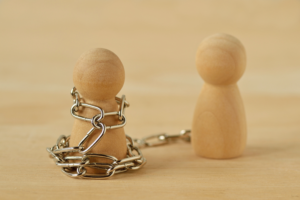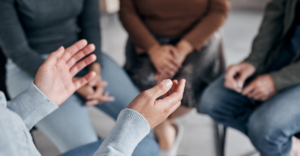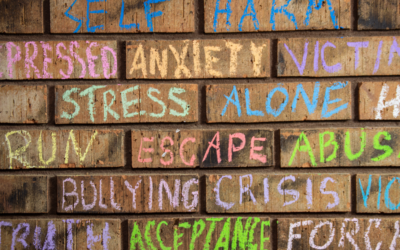Healing Beyond Hurt: Mental Health After Intimate Partner Violence
Dealing with the challenges of getting help for mental health issues after experiencing domestic violence can be really tough. It’s important to recognize the impact of this trauma on your well-being and to reach out for the help you deserve. In this blog post, we’ll talk about the importance of understanding your emotions, the different ways you can get help for your mental health, and how therapy can play a role in your recovery.
Understanding the Impact of Intimate Partner Violence on Your Mental Health

The trauma inflicted through intimate partner violence doesn’t only leave physical scars; its aftermath often can cause a psychological impact on a person’s mental health. Survivors commonly struggle with various emotional challenges, such as feelings of intense anxiety, which might include persistent worry, restlessness, or experiencing symptoms similar to panic attacks.
Equally, a cloud of depression can hover constantly, leading to ongoing feelings of emptiness, despair, or even severe mood swings. Survivors may also find themselves facing Post-Traumatic Stress Disorder (PTSD), which is often linked to recurrent, involuntary, and intrusive painful memories of the traumatic events, causing considerable difficulties in daily life.
It’s crucial to remember that it’s completely normal to have strong emotional reactions to difficult experiences, and these feelings do not reduce your worth or value. It’s also worth noting that being in an abusive relationship could complicate or worsen existing mental health issues, or even result in the onset of new conditions like Borderline Personality Disorder (BPD), characterized by intense emotional ups and downs and difficulty in maintaining stable relationships.
Understanding that these experiences can change your emotional and mental health is a key step toward recovery. Just the fact that you are trying to learn and understand, even when things feel overwhelming, shows how strong you are.
At first, it might seem hard to heal emotionally, but starting this journey is important. Acknowledging how much being in an abusive relationship can hurt your mental health doesn’t mean you’re weak; it actually shows how brave you are. It’s a crucial step in getting help, seeking support, and laying the groundwork for getting better, which will eventually help you become stronger.
Navigating the Path to Mental Health Treatment: What Are Your Options?

When you’re dealing with the impact of intimate partner violence on your mental health, it can be tough to figure out the best way to get help. But reaching out to a professional is a crucial step toward healing and finding yourself again.
Therapy affects everyone differently, so there’s no one-size-fits-all approach to healing. It’s a personal journey that should be customized to fit your own experiences, needs, and preferences.
Professional Treatment
Individual therapy, for instance, offers you a confidential and private space to unpack your feelings and experiences at your own pace. A mental health professional provides personalized support, guidance, and coping strategies based on your particular situation and emotional state.
In contrast, group therapy can also be beneficial. It provides a supportive space where people can share their experiences and connect with others who have gone through similar things. This can help you feel validated and understood.
In some cases, prescribed medication may be necessary for managing intense symptoms of anxiety, depression, or post-traumatic stress disorder (PTSD). Medication is usually most effective when used in combination with other therapy forms, creating a well-rounded approach to your mental health.
Alternative Options
When it comes to healing, different approaches can work together. In addition to traditional treatments, there are other holistic methods like mindfulness exercises, yoga, and art therapy. These techniques help you connect your mind and body, which can be powerful in promoting inner peace and strength.
The path to healing can be tough, with obstacles and times when you doubt yourself. Just remember, taking the first step is the biggest challenge. Don’t be afraid to ask for help, trust the process, and believe in your own inner strength. Even though it’s hard, this journey will guide you to a place of healing, resilience, and a stronger sense of self.
Supporting Yourself During the Healing Process

When recovering from the trauma of intimate partner violence, it’s really important to focus on your mental health. This is not just helpful; it’s essential for your overall recovery. One big part of this is caring for yourself in ways that make you feel good and at peace. It could be spending time in nature or doing something creative like writing, painting, or any art that makes you feel calm. Also, meditation and mindfulness can help you balance your mind and body.
Remembering to care for yourself isn’t just about pampering yourself – it’s essential for building your inner strength and mental well-being. Setting boundaries is also important for protecting your mental space. Boundaries help you control what can impact your energy and focus. Self-care is about honoring your limits and recognizing the importance of your mental peace.
During this time of recovery, it’s important to know that asking for help from trusted friends and family shows strength and should not be seen as a weakness. They can offer emotional support, be there for you, and remind you of the love, respect, and dignity you deserve. Taking part in activities that nurture you goes beyond just helping you heal—it shows your commitment to yourself. It helps you become stronger and more positive, creating a supportive environment where your mental well-being can grow and thrive.
How Loved Ones Can Support Your Healing

Recovering from intimate partner violence is a unique and personal journey that varies from person to person. It takes a lot of strength, commitment, and patience. It involves pain, resilience, hope, and self-discovery. While it’s a personal journey, having supportive friends, family, or loved ones can make a huge difference in your recovery. They can be a strong source of emotional support and provide a non-judgmental ear to listen to your experiences and feelings, which can help you feel better.
Being able to openly share your fears, dreams, and times when you feel stuck in a safe and supportive environment is important for taking time to think and heal. The consistent support you receive acts like a mirror, reminding you of your worth and cheering you on as you work towards feeling better. Their patience in helping you and understanding that healing isn’t always a smooth journey brings stability during tough times.
In the same way, they are there for you in both emotional and practical ways. They can accompany you to therapy sessions, help you research treatment options, and ensure you don’t feel alone. By being by your side, they show that they are not trying to “fix” you but are offering you love and support as you work towards feeling better.
The support from your loved ones can show itself in them encouraging you to set healthier limits and focus on taking care of yourself. This is a meaningful way of recognizing that it’s important to prioritize your mental well-being. When your loved ones show this kind of caring, it can greatly boost your ability to bounce back from tough times, leading you to a more robust path toward healing and renewal.
Conclusion
Embarking on a journey to heal after experiencing intimate partner violence is a deeply personal and meaningful process. In this blog post, we’ve talked about the importance of recognizing how this kind of violence can affect our mental health, the bravery it takes to face our emotions and past traumas, and the different ways to get help for our mental health that are tailored to our own needs and experiences. We’ve also highlighted how caring for ourselves and having supportive people around us can create a positive environment for healing.
Remember that every part of the healing process is important, from realizing you need help to taking care of yourself and accepting help from those who care about you. Healing isn’t always straightforward or easy to predict, but it is possible with patience, kindness, and determination. As we move forward, let’s hold on to the belief that healing can bring hope, help us bounce back, and create a future where our mental health is strong. Remember, you’re not alone on this journey; every step you take brings you closer to feeling peaceful, strong, and renewed.










